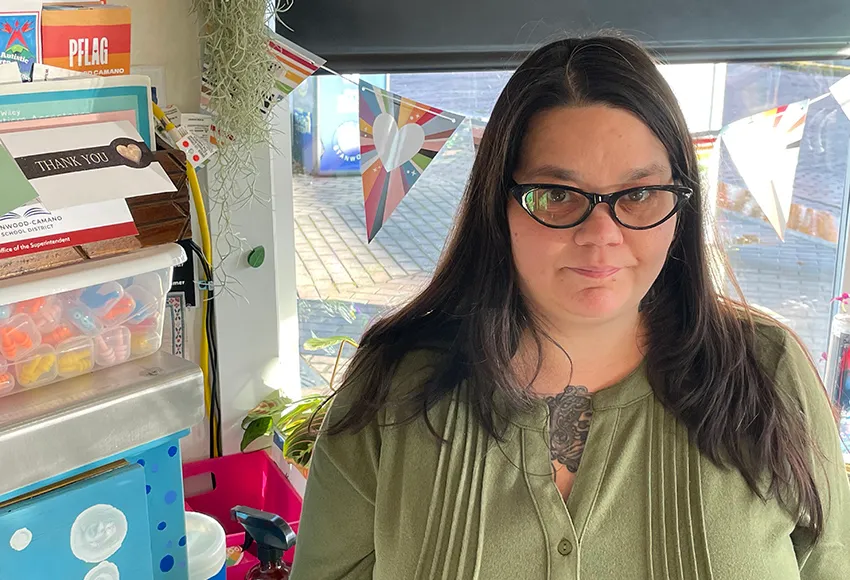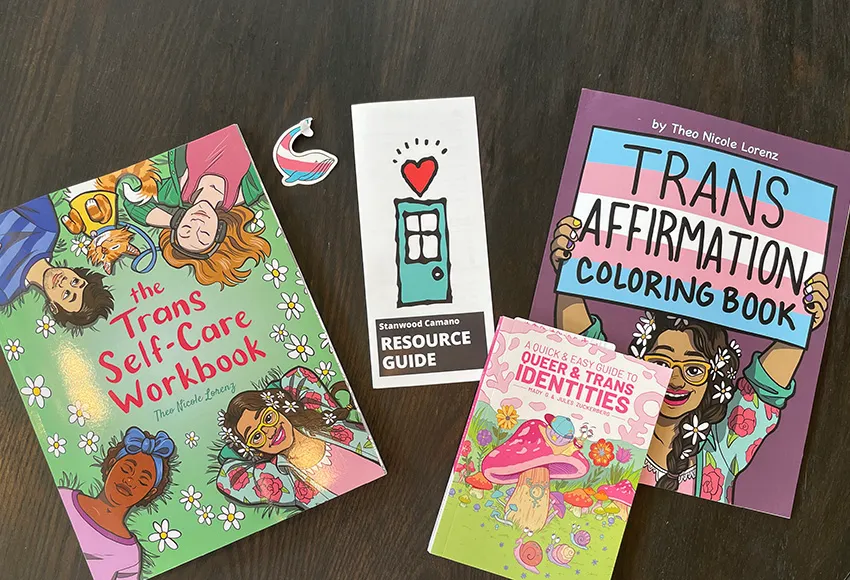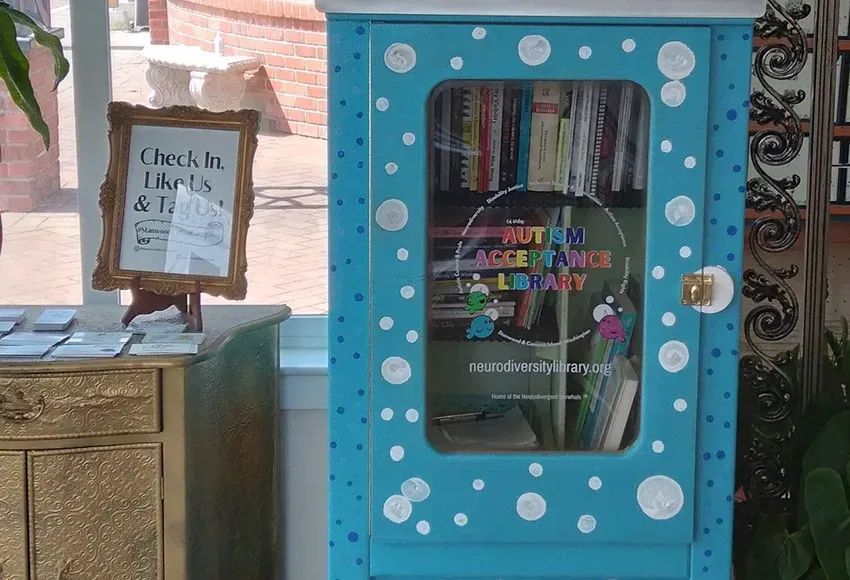In a tattoo shop in Stanwood is a big blue box. On this box are polka dots and cute cartoon narwhals. Inside this box is a true treasure.
Lei Wiley-Mydske, co-owner of Stanwood Tattoo Co., is responsible for curating and promoting the contents of this big blue box, the Ed Wiley Autism Acceptance Library. It contains books about autism, written by autistic people.
"I put this together in about 2014, when I was looking for resources for autism in my community and really couldn't find anything that was written by autistic people. It was all by professionals and parents," Wiley-Mydske said to the SGN.
"So I started my own library."

She recounted the impact that this literature has on those seeking assistance:
"A few years ago, I was at a vendor event and I had a [teenager] come up to me... and there was a book in my library called The Obsessive Joy of Autism by Julia Bascom... and this was the first time – they, as an autistic person – saw a resource that talked about autism that way. They saw they could be proud of themselves as an autistic person."
Amplifying the voices of autistic people
Wiley-Mydske said that her library is meant to amplify the voices of autistic people.
As a "late-identified autistic person" and the parent of an autistic child, she described much of what she found in the past (and still does) as "disrespectful, and not at all accurate," referring to literature coming from a "tragedy" or "medical model."
"I was finding books on autism that just were like, how to put your kids in therapy for 40 hours a week to change who they are."
She explained that most professionals write about autism from the perspective of behaviors neurotypical people find challenging. This makes it difficult for autistic people to understand and accept themselves on their own terms.
"Your child doesn't have a childhood if they're constantly in therapy. I'm not against therapy at all... there's good therapies for autistic people... but when you have an autistic person in behavioral therapy trying to change who they are... not only is that not going to happen, but it's going to damage that person."
Wiley-Mydske was referring to applied behavioral therapy (ABA), the dominant treatment for autism. While educators and professionals widely accept ABA as the default treatment for difficult behaviors in autistic kids, it's controversial among autism self-advocates, who describe some forms of it as abusive, forcing autistic kids to fit neurotypical expectations.
Instead, Wiley-Mydske promotes language, speech, and occupational therapies. "Autism is a disability, but... autistic people can have meaningful and joyful lives no matter how much help we need."

Intersecting with the Queer community
In addition to autism acceptance, Wiley-Mydske works alongside the LGBTQ+ Resource Center in Stanwood to organize on behalf of the Queer community. These issues are not entirely separate for her. "I think there's a lot of intersection," she said.
Pointing to research published by the University of Cambridge and in journals such as Autism Research and The International Journal for Transgender Health, Wiley-Mydske noted that "a large portion of autistic people are also members of the LGBT community... There is some research that shows that autistic people are more likely to be LGBT."
This intersection brings out much of her passion. "We work with groups like Stanwood-Camano PFLAG... and we work with a lot of LGBTQ organizations," she said.
Wiley-Mydske has advocated for the needs of neurodivergent people at Stanwood-Camano Pride. "Even a little Pride on Camano Island can be overwhelming," she said.
At the first Stanwood-Camano Pride in 2021, she brought the library, fidget toys, and soft surfaces to provide a safe space for neurodivergent people.
Though Stanwood is not known for being a Queer-friendly, liberal environment, Wiley-Mydske said it is changing, "just much slower than I'd like," adding, "There is a community here, and we just kinda need to organize."
When asked what the one thing is that she would like people to take away from her efforts, Wiley-Mydske told the SGN, "Being autistic isn't the only thing about you, but it's a big and important part of who you are, and it's okay to be proud of who you are, even when it's hard."
She concluded, "There's a really big and thriving autistic community out there and we're all pretty cool people."
The Ed Wiley Autism Acceptance Library is located inside Stanwood Tattoo Co. at 10003 270th St. NW, Ste. A. For more information, visit http://www.neurodiversitylibrary.org


